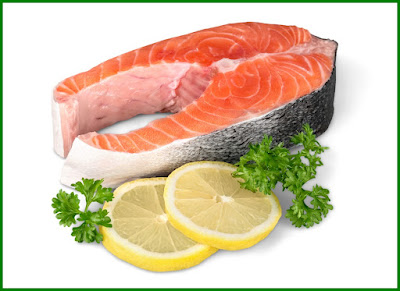According
to our habits and, sometimes, our culture, fish takes more or less of an
important place in our eating habits. Eating fish is extremely beneficial for
both physical and mental health. Do you doubt it? Here are 8 good reasons to
eat fish.
1. There is a large variety of fish
There
are many kinds of fish. Cod, salmon, tuna, trout, sardines, mackerels... It's
hard to choose! This is one of the major strengths of this food. You can make
several fish meals a week without eating the same thing. This diversity is also
reflected in the prices. Seasonal fish are cheaper, and those can be offered as
canned food. Why deprive yourself?
2. Fish improves memory
We
often hear that eating fish is good for memory. If this saying is so popular,
it is because the fish is very rich in phosphorus and omega-3. Phosphorus is
present in the membranes of the brain. Consuming it allows you to maintain your
brain in perfect state. Omega-3s provide essential fatty acids to nerve cells.
From an early age, fish helps with intellectual development. Over the years, it
can effectively fight against Alzheimer's disease.
3. They are excellent for the cardiovascular system
If the
fish is beneficial to our veins, arteries and heart, it is once again because
it is rich in omega-3. These essential fatty acids promote good cholesterol and
reduce bad cholesterol. Our cardiovascular system is thus perfectly maintained,
and the risk of succumbing to cardiovascular disease is halved!
4. They keep you young
Fish is
excellent for your skin: it even slows down its aging! This is because the fish
is rich in zinc and selenium. These trace elements ensure the renewal of your
cells. At the same time, the vitamin E present in some fish allows you to look
good and the vitamin B ensures a good blood circulation.
5. Fish is good for morale
Thanks
to the essential fatty acids that compose it, fish is excellent for morale. It
reduces stress, anxiety and the risk of depression. How? Thanks to omega-3s,
which ensure the correct functioning of the cardiovascular system and a better
diffusion of the hormones secreted.
6. Fish strengthens our bones
Fish is
an excellent source of vitamin D. This allows the body, and especially our
bones, to better absorb the calcium consumed. In addition, fish contains
phosphorus, a mineral as good for the brain as for the bones and teeth.
7. Fish helps fight fatigue
Fish is
rich in vitamins, minerals and trace elements: in short, it is complete! Eating
fish at least twice a week helps fight fatigue effectively. Because it is also
very rich in iron, fish reduces the risk of its deficiency, which results in
physical and mental fatigue.
8. Fish is good for your figure
Fish is
a slimming ally. It is rich in proteins, the benefits of which are many: they
strengthen the immune defenses, promote the renewal of tissues and guarantee
the proper functioning of the body. In addition, fish is low in calories and
very tasty. It can, therefore, replace other kinds of meat several times a week
and allow you to reach an ideal weight.
Eating
fish at least twice a week helps optimize your health, body and mind. Thanks to
a good variety of dishes it comes in, fish also makes it possible to please any
gourmet in any season.








